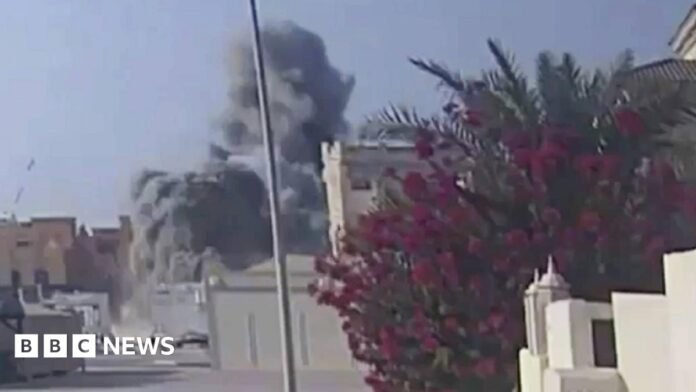Attack shatters sense of sanctuary Hamas believed Doha offeredpublished at 12:07 British Summer Time
 Rushdi Abualouf
Rushdi Abualouf
Gaza correspondent
The Israeli air strike that attempted to kill senior Hamas figures has cast a long shadow over the militant group’s ties with Qatar, long regarded as one of its closest allies.
For more than 13 years, Doha has been more than just a mediator in the region.
After Hamas seized control of Gaza in 2007 and was shunned by much of the international community, Qatar stepped in as a strategic lifeline, providing financial and political backing.
It remains the only country to have stationed a de facto permanent envoy in Gaza – Ambassador Mohammed al-Emadi – whom many Palestinians came to describe as the territory’s “real governor” due to his central role in aid distribution and reconstruction projects.
Following the killing of Hamas political leader Ismail Haniyeh in Tehran, the movement quietly relocated some of its officials in Iran to Qatar, viewing it as the safest base in the region.
According to one of Haniyeh’s advisers, around 1,000 Hamas members and their families are living in Doha, housed in government-provided accommodation that includes stand-alone villas for senior leaders, a large headquarters building for the movement, and apartment blocks for released prisoners and security staff.
But the latest Israeli strike, which targeted Hamas offices in the Qatari capital, may have rattled this arrangement.
The attack shattered the sense of sanctuary the movement believed Doha offered.
The incident could make it increasingly difficult for any regional state to continue hosting Hamas leaders, further complicating regional diplomacy.
In recent months, Hamas officials have been moving with relative freedom between Doha, Cairo, and Istanbul – maintaining political contacts and running informal offices in the Egyptian and Turkish capitals.
The Israeli strike, however, has deepened questions about where and how Hamas can continue to operate beyond Gaza

